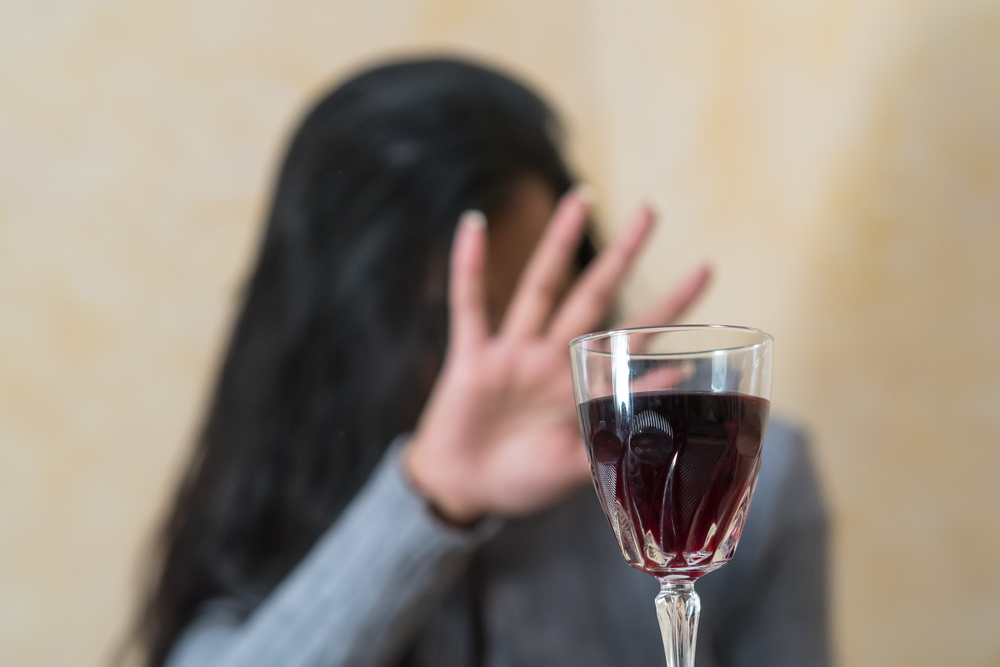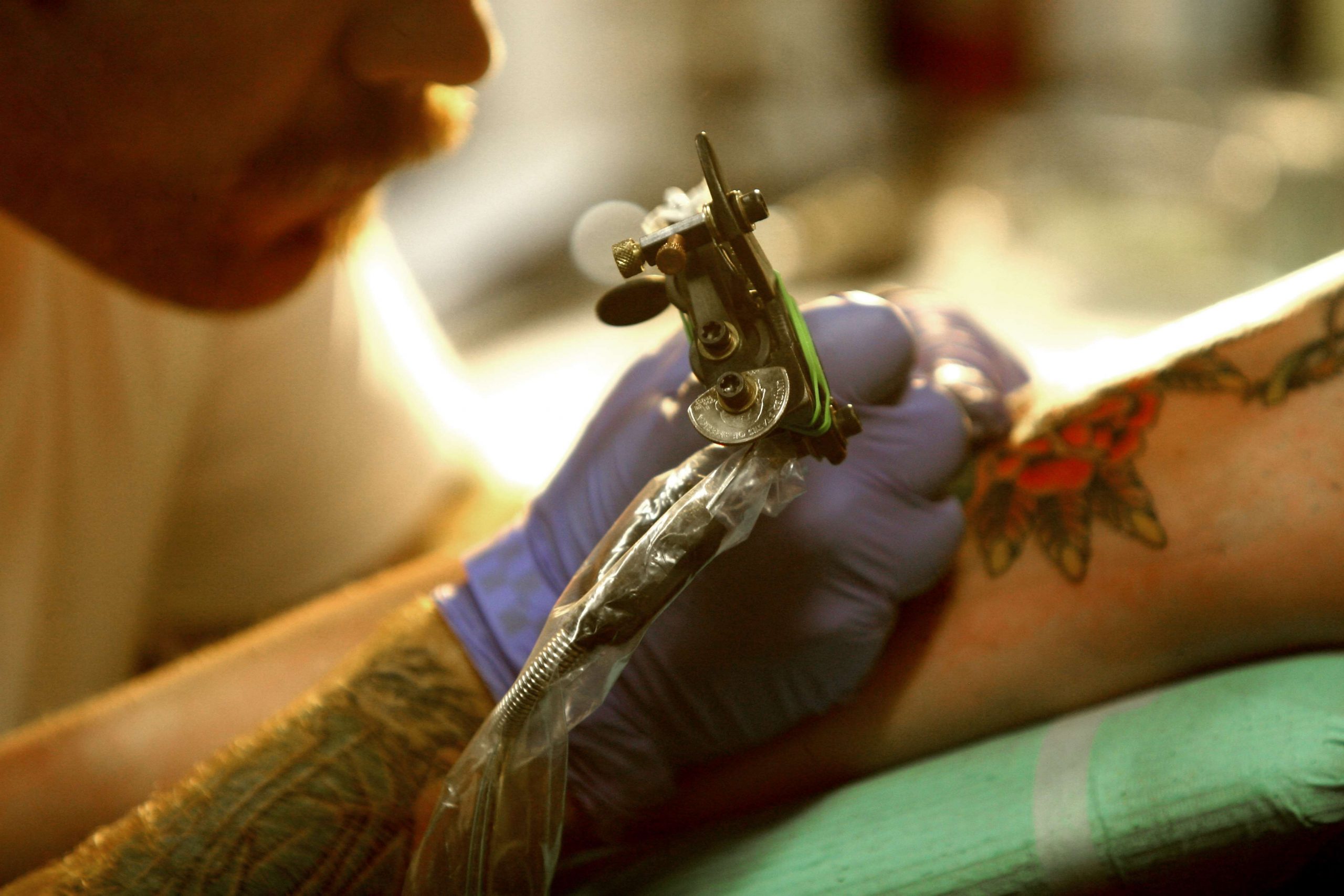
13 Essential Books To Build A Holistic Recovery From Addiction
By G5global on Thursday, November 25th, 2021 in soberT1new_25.11. No Comments
Content
- Drink: The Intimate Relationship Between Women And Alcohol
- Books
- Rewired: A Bold New Approach To Addiction And Recovery
- Smart Recovery Publications
- Integral Recovery
- Books To Help You Through Addiction And Sobriety Recovery
- When Aa Doesnt Work For You: Rational Steps To Quitting Alcohol
- The Complete Acoa Sourcebook: Adult Children Of Alcoholics
- 7 Weeks To Sobriety
The book ends on a hopeful bottom, where Don is clear-eyed and ready to give not drinking another chance. It is the new day that every drunk faces each time they quit again. A stunning debut novel about a short but intense friendship between two girls that ends in tragedy, Marlena pinpoints both what it feels like to bethe addict and what it’s like to be the friend of one. Today, some of my favorite works of fiction are those which manage to portray the complex multitudes of ways in which alcoholism affects people—not just the addicts themselves, but their friends, family, and co-workers. It is easy to use addiction as a crutch, a way to build plot or signal “here’s a bad dude,” but it is much harder to accurately and humanely depict the life-warping pain of struggling with alcoholism. The books which do it best, in my opinion, are often not consciously “about” addiction at all, but show its effects lingering in the corners of every page.

Choosing Therapy earns no money from the sale or promotion of the vendors, publishers, or authors of the books listed within this article. The Joint Commission for the Accreditation of Healthcare Organizations evaluates quality of care provided by healthcare organizations. Footprints has the Gold Seal of Approval, which means we possess the highest standard of safety and quality of care. I love the book “We are the Luckiest” by Laura Mckowen, it would be a great one to add to this list. This gem of a book by Clare Pooley is a nice departure from the intensely introspective books I just mentioned.
This is really a book about how to discipline your mind and pursue your goals. Whether your goal is to improve your financial situation or not, this book can help you discover the life that you actually want to live. For a long time I felt tortured by the mystery of why some people are alcoholics and others aren’t. This nuanced work helped to answer that burning question for me. Published in 1997 this is a hugely popular book that describes how living in the present moment is the best way to live.
Drink: The Intimate Relationship Between Women And Alcohol
This is a great read for building your self-esteem back up from the ashes of alcohol addiction. Admittedly, there are a lot of lists there about the best recovery memoirs, which is why ours is a little different.
The authors describe anger, fear, intolerance, and self-pity as the“rocks”that can sink the recovery process. She discusses the twelve-step program and points out some of its shortcomings. This book illustrates some fresh ideas in the fight against substance abuse. Setting boundaries is healthy for the family member as well as the addict. I strongly recommend reading this book if you believe you are in a codependent relationship.
The result is a thorough, in-depth scientific look that is still easy to digest. Carr understands addiction and the personal destruction that leads you to it. He made me think about what I was doing in ways nobody else had done before. Marketed as a memoir, a 2006 Smoking Gun exposé suggested elements of the story had been fabricated.
When she looked around she couldn’t help but notice that she was very much not alone. Lush explores the ongoing addiction crisis amongst middle-aged females through Cohen’s lenses in a very relatable style.
Bruno’s complete lack of contact with reality makes his alcoholism seemingly beside the point, but as the story progresses, I find my sympathies shifting as Bruno becomes more and more helplessly imprisoned by his disease. Highsmith manages to humanely portray a murdering, rich, hapless drunk so that near the end, one inevitably feels more complicated and ravaged by both Highsmith and Bruno’s trickery. If there is one book that has changed my life for the better, this is it. Although not a book written explicitly for addiction and recovery, the tools explained in this book can help anyone improve their general mood. She also explores new approaches to treatment, including the LEAD program in Washington State. Maia delves into brain chemistry, the physiology of addiction, and the effect of drug abuse politics on society.
She is adept at making the intangible just a bit easier to grasp. In doing so, transformative practices appear as simple, logical steps. Iranian American novelist Porochista Khakpour’s elegant, vibrant memoir is primarily about being sick and trying to find answers.
Discover new workout ideas, healthy-eating recipes, makeup looks, skin-care advice, the best beauty products and tips, trends, and more from SELF. Engaging, readable, and honest, this book is like getting a hug from your best sober buddy. For more information on AAC’s commitment to ethical marketing and treatment practices, or to learn more about how to select a treatment provider, visit our About AAC page. Here are six books that will educate you and help you find peace of mind.
This book explores the next fifteen years of her life, including the various lies that she told herself, and others, about her drug use. With tons of heart and wisdom, Khar eventually helps readers recognize the shame and stigma surrounding addiction and how there is no one path to recovery. At the end of the day, you’ll want to devour this book because it is ultimately a life-affirming story of resilience that is a must-read. Probably the least-known work of the Brontë sisters, by the least-known sister, Anne’s second and last novel was published to great success in 1848. Helen ultimately escapes her marriage and pretends to be a widow, earning a living as an artist to care for herself and her young son.
Sarah’s writing is sharp and relatable; a more recent, modern voice in the recovery space. So many of us look at “blacking out” as benign, or normal—an indicator of a “successful” night of drinking. In Blackout, Sarah clearly explains why there’s nothing benign about it and describes what is actually happening to the brain when we reach that point of alcohol-induced amnesia. I love her perspective on drinking as an act of counter-feminism—that in reality it actually dismantles our power, our pride, and our dignity as women, though we intended the opposite. Author Caroline Knapp shares her personal memoir and brings to light the fact that more than 15 million Americans a year are plagued with alcoholism and 5 million of them are women. Caroline describes how she drank through her years at an Ivy-League college, her award-winning career, while masking herself as a dutiful daughter and professional.
This is a darkly comic book about the slow road through recovery, really growing up, and being someone that gets back up after screwing up. He also addresses his experience of feeling out of place in the music industry as a rapper who also practices a Christian faith, feeling excluded at red carpet events due to discussing his faith in his lyrics.
I can’t relate to much of Carr’s experience with drugs and alcohol, but I could connect to inner demons that drove him to it. How to address negative thoughts and feelings about the past and future is just one of the intentions of Tolle’s powerful book on spiritual can be used as a daily guide for dealing with life’s stresses. Tolle begins by showing you that YOU are the source of enlightenment in your life, and you are also the source of pain – depending on how you think and act. “Start living NOW,” is the message throughout the book, and it gives you practical ways to get into that type of thinking. The spiritualism covered it is not heavily religious or tied to any specific spiritual beliefs, and the advice given can easily fit into YOUR life.
She’s just someone who uses alcohol to muster up courage, and well, survive life. This is just how it has always been since her introduction to Southern Comfort when she was just fourteen. By day, she’s a successful editor, but by night she’s a party girl who can’t sleep. In this tale of self-loathing and self-sabotage, readers can follow Marnell as she battles her inner demons and falls down further into despair — yet eventually making it through to the other side. But, growing up with an alcoholic mother, my most common mode of escape as a child was in fiction.
I had to practice believing because there was no other way to get out. BrightView offers comprehensive outpatient treatment that can help you reclaim your life. Writes with a rare mix of honesty, humor, and compassion about his own wild story and shares the advice and wisdom he has gained through his fourteen years of recovery. Residential services and treatment programs, we are not able to contract or accept these methods of payment. Determining whether you need moderation or abstinence can be difficult, so this book is to help you find whatever path may work for you.
Cupcake survives thanks to a furious wit and an unyielding determination and you’ll want to read her inspiring tale. In this dazzling memoir about a family’s struggle with hoarding, Kimberly Rae Miller brings to life her experience growing up in a rat-infested home while trying to hide her father’s shameful secret from friends for years.
Books
This lethal synthetic opioid is much more potent than heroin and it’s now wreaking havoc where OxyContin off. We read how Nick Sheff went from performing strongly in the classroom and as a varsity athlete to stealing from his brother and living on the streets.
Repair your body, rebalance your brain, and then decide your future path with a clear mind and a plethora of natural feel-good chemicals coursing through your body. The premise of this book is that every living creature has evolved to seek mind-alteration from the natural world around us. To deny the fact that we do so is to deny an essential part of our nature, not simply as human beings, but as evolutionary creatures with fundamental needs.
I am, probably, by way of my history, more attuned to picking up on it than others. The 12 steps are also the cornerstone of many other treatment programs.
I used this book for motivation to quit drinking, even though the subject of alcoholism is barely discussed. Between this book and Bigger, Leaner, Stronger, you’ll have some high level diet and exercise programs to model and remold into your own. Mainstream recovery culture has become insular, circular, and stale.
The rest were invaluable resources for me after I quit drinking, when I still needed guidance for repairing my brain, rebuilding my body, and resurrecting my spirit. Janelle Hanchett chronicles the story of embracing motherhood through the devastating separation from her children at the height of addiction. Her quest for sobriety includes rehabs and therapy — necessary steps to begin a journey into realizing and accepting an imperfect self within an imperfect life. For any mother or person who has felt like an outsider in your own life, you might just relate. If you’ve ever looked around the room and wondered why there is alcohol everywhere, then this is the book for you.
The smart reality of her book is that the attitudes and beliefs that accompany addiction are what fuels the disease. Change your focus and healthy choices that rejuvenate body, mind and spirit are bound to follow. The book includes action-oriented, positive affirmations and intentions to help you do so. Living Sober, another production of Alcoholics Anonymous, offers a selection of anecdotes, examples, and bits of advice for navigating the real world as a sober person. This short book is a must-read for anyone looking down the road to recovery and feeling disheartened, because it is full of the stories of people who learned to fill their lives with meaning and joy, instead of alcohol.

The increase in scientific knowledge in the early twentieth century led to questions about this view of alcoholics, but the view still dominated for the first 30 years of the century. A decisive turn toward seeing alcoholism as a disease was the publication of The Big Book and the founding of A.A. It is one of the best-selling books of all time, having sold 30 million copies. In 2011, Time magazine placed the book on its list of the 100 best and most influential books written in English since 1923, the year in which the magazine was first published. In 2012, the Library of Congress designated it as one of 88 “Books that Shaped America.” Ben Westhoff spent 4 years laying bare the trade in synthetic drugs.
Rewired: A Bold New Approach To Addiction And Recovery
You could never tell, but she is the perfect example of a high-functioning alcoholic who looks like everything is perfect, even when it clearly isn’t. Eventually, she goes through a series of 9-to-5 jobs that end with her living behind a Dumpster due to a descent into crack cocaine use.
The central premise of Russell Brand’s Recovery is that you can only be free once you are free from addiction. For many people caught up in a destructive rock and roll lifestyle, the thought of sobriety might seem restrictive. By reframing it and considering that you can only attain that bohemian freedom you’re seeking once no longer dependent on drink and drugs, this could help you if you’re tempted to relapse. Weller’s story is not one of darkness and demons, but one of uplifting changes. This book shows you what life can be like when you take back control, and overcome alcoholism. It provides the struggling alcoholic with a look at the other side—not just to manage your life again, but to love it. A person of extraordinary intellect, Heather King is a lawyer and writer/commentator for NPR – as well as a recovering alcoholic who spent years descending from functional alcoholism to barely functioning at all.

Jung was concerned about the ease with which individuals slip into groupthink instead of forming their own authentic identities. Even if you disagree with these observations, you can enjoy lots of fun stories about ants, birds and monkeys getting stoned in their natural habitats. In fact, I just returned from a trip overseas in which the bartender and I bonded over free non-alcoholic cocktails and had a delightful hour-long conversation about kratom. This is a fantastic read whenever you feel unsure of what to focus on or simply overwhelmed by negativity. To find out how we can help you or someone you care about, contact us today.
But in my case, these books helped me to transcend alcoholism once and for all. The good news is that regardless of the “root causes” of alcoholism, anyone with this disorder can decide to take control of their biochemistry, psychology, social influences, and spiritual development. It is a disorder that can be permanently resolved using the Bio-Psycho-Social-Spiritual model of recovery.
Feeling Good explains how thinking errors can lead to these conditions and gives the reader tools to change their thinking. Grisel explains how mind-altering drugs work and how the brain learns to adapt to their effects. Since the brain has an infinite ability to adapt, there is never drug to satisfy the person. Drop the Rock digs deeper into steps six and seven of the twelve-step program.
According to Futures Case Manager Katie Dalo, this is a book every person on the planet should read a minimum of 10 times. As Katie describes the book, “it’s about radical acceptance, that you are perfectly imperfect and it’s o-freakin-k! ” Researcher Brene Brown has become immensely popular over the past handful of years, due in large part to her excellent TED Talks about vulnerability and shame. For the past three decades, Codependent No More has been one of the best books for families of recovering alcoholics and drug addicts. This book is a helpful guide for everyone whose life has been strongly affected by the disease of addiction. Filled with exercises and self-tests, the book is immensely helpful for the individual who has lost himself or herself in the continuous story of a loved one’s addictive behavior. Codependent No More offers practical advice for regaining one’s individuality.
We were not always so fortunate in having such an extensive choice. Although many people point to such as the Greek myths and what are today considered “religious” texts, the birth of what now is termed “self-help” literature really started in the 1930s. For Caroline Knapp, as it is for many, alcohol was the protective friend that allowed her to get through life. Her protector became her lover and this is the memoir of their twenty-years-long destructive relationship.
I do not agree with everything in this book; Carr seems to downplay the biochemical aspects of addiction, and he strangely denies the existence of alcohol withdrawal. However, if you’re past acute alcohol withdrawal and you want to obliterate your psychological attachment to alcohol, this book can help you do it. But the real catalyst of what we know today started with the 1976 publication of Your Erroneous Zones by Dr Wayne Dyer. Anyone who has ever suffered from panic and anxiety might understand the allure of alcohol to help cope. That siren song eventually led to broadcast journalist Elizabeth Vargas to admit her addiction on national television.
Letting go of the Thief is a ninety-day voyage into alcoholic thinking. Welcome to the chaotic thrashing of a mind, Alcohol detoxification pulsating with intoxication. Spend a few moments in the whirlwind of shame, guilt, and utter desperation.
Smart Recovery Publications
This book will give families greater insight into what drugs and alcohol do to change a person, and puts the struggle that addicts endure into perspective. Had been a successful Wall Street businessman, but his career was in shambles because of his chronic alcoholism. To join the Oxford Group, a spiritual movement based on the “Four Absolutes” of honesty, purity, unselfishness, and love. Met Dr. Bob in May 1935, best alcoholic memoirs and the men shared their stories with one another. The two began to work on how to best approach alcoholics and began trying to help men recover from alcoholism. And Dr. Bob realized their system had helped over 40 men stay sober for more than 2 years. One of the most common mistakes mothers and fathers of children with substance abuse problems make is forgetting about their own well-being and recovery.
It also rests on the premise that an unhealthy attachment to drinking is endemic to a person’s identity, and therefore impossible to get over. When you conquer alcoholism, you’ll free up energy that you used to expend on drinking. This energy can become a powerful reservoir for future achievement. Regardless of how old you are, books like Mastery can show you how to awaken your creative passion and find mentors to help you reach the top of whatever field you dream of. Neuro-linguistic programming is a fascinating system for reprogramming behavior by altering cognitive associations. This book is the most basic guide for NLP that I have found, and the authors describe how using NLP has changed the lives of people they care about.
Alcoholics Anonymous by AA co-founder Bill Wilson was published in 1939 and it has saved and transformed the lives of millions of people who were once considered beyond help. It is actually where the then new fellowship of recovering alcoholics took its name.
If you’re looking to uncover more of your trauma , then you may want to give this a read. If the religion-focused themes of Alcoholics Anonymous don’t resonate with you, you’ll likely appreciate Holly Whitaker’s refreshingly female-focused take on sobriety as well as the “insidious” nature of the alcohol industry. Her program focuses on root causes of overindulgence and how to break the cycle.
Although not an exhaustive list, these seven books are a wonderful starter list for diving into the world of Quit Lit. Especially the evolution of mommy drinking culture and how we got this place where we’ve tried to normalize drinking as a way to cope with the stresses of being a woman in today’s modern world. I cracked up laughing as many times as I nodded my head in knowing, alcoholic agreement. The basic premise of this book is that she is letting us peek into her diary during her first year of sobriety. Until I read this book, I felt a combination of broken and hopeless. Or maybe you’re already sober and looking to make more upgrades to your life. The biggest factors in your success will be whether or not you’re equipped with the right tools and support to get where you want to be.
I included this book to point out that depression and addiction can happen to anyone. Learn to live your own life and stop assisting a loved one in destroying theirs.
- Chaney Allen’s book was the first recovery memoir that was published by a Black woman author.
- A decisive turn toward seeing alcoholism as a disease was the publication of The Big Book and the founding of A.A.
- Looking for a recovery facility and want to learn more about what Landmark has to offer?
- We’re a modern recovery company that helps you stop drinking and start feeling better.By using evidence-based treatment and peer support, we can provide you with the education, tools, and community you need to recover.
- Ann’s book is such a unique and insightful combination of personal experience and scientific research.
- Since 1978, it has extended resources, advocacy and thought leadership to its members.
We were inspired by the diverse experiences of our own community members. Since we care about all kinds of recovery, we wanted to emphasize that drugs and alcohol are not the only ways that women suffer and not everyone recovers through a 12-Step program.
I’ve dug into memoir after memoir, tiptoed into the hard science books, and enjoyed the fiction from afar. The following are a smattering of the books about alcoholism I’ve found meaningful. This book isn’t about alcoholism exactly, but it’s an in-depth dive into how our parents, grandparents, and other influential figures in our lives affect our trauma.
With incredible wit and skill, Sacha Scoblic manages to tell you both what alcohol used to mean for her and how her sober life is going now. She relied on alcohol, and now that this is no longer an option she has to re-evaluate everything in her life, which leads to some witty observations on her newfound life. In this book, she narrates the year in which she went from a cancer diagnosis to her happiest and best self. Her journey covers sobriety, beating cancer, and building a richer life than she’d ever imagined.
When we aren’t posting here, we build programs to help people quit drinking. When we aren’t posting here, we build programs to help people quit drinking. This is a raw memoir that makes you feel like you’re there with the writer, through all her shame, all her hiding, and all her self-accusations of being a terrible mother because of her drinking. Her struggle is beautifully portrayed, and you also get to emerge with her on the other side once she regains her sobriety once more. There’s a new kind of thinking in the recovery world, and all of that is thanks to McKowen’s upcoming memoir . If you’ve wondered what it would be like to live your life sober, this book is for you.
Integral Recovery
Quit Like a Woman is her informative and relatable guidebook to breaking an addiction to alcohol. Although these books may seem obvious, they’re iconic for a reason. The Big Book and the Basic Text, titled by the names of their given fellowships, are must-reads for anyone who identifies as an alcoholic and/or addict. They’re also highly recommended for anyone close to or who works with someone who struggles with substance abuse. The insights found within The Big Bookand the Basic Text are unlike any you’ll find in other books.
The first 100 pages blew my mind and I found myself getting excited to read another chapter of this book every night before going to sleep. With intensity and repetition, I’ve also turned certain yoga poses into automatic initiators of a rush of feel-good chemicals.
The responses to comments on fitrecovery.com are designed to support, not replace, medical or psychiatric treatment. Please seek professional care if you believe you may have a condition. Dr. Rebeca Eriksen is the Nutritional Consultant for Fit Recovery. She has a PhD in Nutritional Genetics from Imperial College London, and over ten years of clinical experience designing custom nutritional repair regimens for patients recovering from alcohol addiction. In addition to her work at the exclusive Executive Health clinic in Marbella, Spain, she helps to keep Fit Recovery up to date with emerging research. At Fit Recovery, we do not believe that positive change can be caused by fear tactics or one-size-fits-all dogma. If you have a problem with alcohol, it probably makes sense to take an indefinite break and save the “forever” question for later.
Maia Szalavitz shares a new perspective on the addictive personality. Codependent No More is written for the families of recovering addicts. This book gives family members exercises to help regain their individuality.
Any of these conditions suggests it would make sense to stop drinking. Belief is a practiceI had to actively choose what I had for so long taken for granted because I was born with it. And I had to do so based on absolutely nothing but the promises of others who’d gone before me who promised a better way. I had to actively choose to believe in myself, despite all the evidence that I shouldn’t. I had to believe there was something much bigger than my body, my mind, my very bruised heart, and that this thing wanted me to live, and live brightly.
Maybe you’re a pretty moderate drinker, but you feel like booze just isn’t your friend anymore. Maybe none of these things apply to you when it comes to alcohol, but there’s something else in your life that’s not a positive force. Anhedonia, the inability to feel pleasure or genuine passion, is a real problem for people who quit drinking. Reinventing yourself as a student of human nature is one of the best ways to rekindle your interest in the world around you. Transcending addiction is a worthy goal because, as Tony Robbins says, you feel what you focus on. If you make your entire life about perpetual recovery from alcohol addiction, then alcohol will always be on your mind by default.
But she ultimately forges a path ahead to find a new life worth living. This book will resonate with those who’ve had a tough time at rock bottom. Mary Karr is known for her wit and charming style, and in these pages, she discusses pretty much all her life struggles, not only those with alcohol.

The Big Book was originally published in 1939 by AA founders Bill W. There have been numerous reprints and revisions, in addition to translations into dozens of languages.The second edition consisted of 1,150,000 copies. The book is published by Alcoholics Anonymous World Services and is available through AA offices and meetings, as well as through booksellers. Marty Mann (1904–1980) wrote the chapter “Women Suffer Too” in the second through fourth editions of the Big Book. Pamela D Pesta gives you a snapshot inside the mind of someone descending into full-blown alcoholism. With a behind-the-scenes look from the perspective of families and first-responders, you can see the effects of the opioid crisis up close and personal. Even if you feel your life has been shattered into a million little pieces, recovery is always possible.
Books To Help You Through Addiction And Sobriety Recovery
Written by John Dupuy, Integral Recovery works to modernize drug and alcohol treatment using the latest research, techniques, and information. Promoting a holistic recovery, this author provides an informative and researched-based book about why treatment works.
Then about how he lost his beloved big brother to brain cancer… and all of the hardships that led to his years-long battle with addiction. Here, he retells his journey from substance use disorder to a torturous path to sobriety. You may have heard about Hunter Biden before and maybe even know that he published a memoir about his struggles with drug and alcohol addiction. About 21.5 million people in the United States ages 12 and above have substance abuse disorders. This includes 17 million people who live with alcohol use disorder. For these millions of people and the many more who love them, the throes of addiction and everything it brings with it are very real.

The roller coaster ride of addiction doesn’t only affect the drug user; it affects the entire family – especially the parents. In Don’t Let Your Kids Kill You, Charles Rubin lets parents know that their lives are just as important as their child’s, and that self-care isn’t selfish, but absolutely necessary. This book is a guide to healing and living a better life for those who so desperately need it. Rubin also comforts parents by dispelling the notion that they are to blame for their kids’ problems, a feeling so many parents struggle with.
When Aa Doesnt Work For You: Rational Steps To Quitting Alcohol
Their “Big Book,” as it’s generally referred to, has developed since its first release in 1939. This first publication consisted of the basic, most important information for alcoholics, especially as it pertains to being part of AA. Many people have lauded this book as an honest, inspiring, and life-saving volume for anyone struggling with alcoholism.

Can these books be separated into categories for recovering addicts and family members? For our long answer, keep reading… Books, movies, music and various art forms can do wonders to inform what we know about addiction and recovery. When counseling clients, we will frequently cite excerpts and recommend reading from books that present a particularly insightful or influential point of view. In recent years, a growing number of famous figures have authored books about their battles with addiction – seeking to help others who struggle to learn from their experience. Authors who successfully transition from addiction to long-term recovery often serve to inspire readers who identify with them. The best books on addiction teach us about the commonalities of the disease and the fact that a great number of people ultimately do recover.
Hepola’s tone is often funny and loose but she writes with a journalist’s precision and the book reads almost like a thriller. After one particularly harrowing experience in a hotel, Hepola gets sober and the reader realises she has been holding her breath for a couple hundred pages. Have you ever read a book that perfectly blended memoir with cultural history, literary criticism, and reportage?
We then offer a personalized treatment program that will work for the most effective and Sober living houses enduring recovery. Or in fact anywhere in our luxury mansion is wonderfully peaceful.
At best, going to bed with a bottle of wine will make you wake up feeling dry-mouthed and stupid. Going to bed with a book will tire your eyes naturally, ease your subconscious tension, and fill your mind with endless possibilities. Tolle relates his past experiences of relentless anxiety and severe depression. But aged 29 he had an abrupt realization when he heard the words “resist nothing”… and afterwards he experienced a great peace about everything. This means they can become self-empowered and find meaning in life. First published in 1987 Jeffers’ book has since been translated into 36 languages.
If you attend an Alcoholics Anonymous or Narcotics Anonymous meeting, you’re sure to hear excerpts that proved life-changing for someone in the grip of addiction. Many can attest to feeling these books were written just for them. That’s actually a perfect segue into what sets Jamison’s book apart from most recovery memoirs and books about addiction. In a brilliant narrative style, she constantly flips back and forth between her personal story and a history of the alcoholic creatives who came before her, their lives intersecting in fascinating ways. An older book that was published in 1963, this book could be considered timeless to anyone who has known the struggles of addiction, particularly alcoholism.
The Complete Acoa Sourcebook: Adult Children Of Alcoholics
More than just a memoir, this book is about the societal traps that lead us to drink, how drinking affects our brains and our bodies, and the psychology and neuroscience behind it all. What happens when an ambitious young woman is keeping a secret of addiction? High-profile writer Cat Marnell answers the question in the gripping memoir of her life as she battles bulimia on top of an addiction to alcohol and prescription drugs. Although the details of our addiction and recovery stories may be different, the core of our experiences is often the same.
She’s drawn to Marlena’s world and joins her on an adventure of drinking, smoking, and kissing. Marlena’s dark habits worsen, though, and she ends up dead within the year. Decades later, Cat reminisces about those days with Marlena and learns to forgive herself and move on from those days. Julie Buntin’s Marlena is a stunning look at alcoholism, addiction, and bad decisions, and how they haunt us forever. Ann Dowsett Johnston combines in-depth research and her own story of recovery in this important book about the relationship between women and alcohol.

Before I was old enough to simply walk out of the house and literally escape, I hid inside my room and read entire afternoons away, happily lost. Never Enough is a fascinating book written by an expert who experimented with many substances in her early years. Carr removes all the glamour from smoking and helps retrain the mind to realize how devastating ingesting this substance really is.
Her beloved habit of over-drinking and staying until bars closed, however, meant that her nights and the following mornings were also all about her regular blackouts. You’ve probably already heard the name Augusten Burroughs or at least his first memoir , Running with Scissors. But in this memoir, Burroughs recounts his very regular and ordinary life of working in advertising and enjoying a drunken Manhattan life—until his employers force him to attend rehab. In this essay collection, Coulter writes with wit about a life in transition—and what happens when you suddenly look up and realize that maybe everyone else isn’t quite doing things the right way. But wherever that journey starts, these memoirs prove that struggle can lead to something beautiful in the end. Learn about what alcohol withdrawal syndrome is, the symptoms, treatments, and who’s most likely to experience it. A Drinking Life” was written 20 years after Hamill took his last drink, and in it he shares how drinking in his early years affected his life trajectory.
SMART Recovery is a global community of people and families working together to resolve addictive problems. In our free group discussion meetings, participants learn from one another using a self-empowering approach based on the most current science of recovery. Senate for 18 years and was the 1972 Democratic candidate for president. Rarely has a public figure addressed such difficult, intimate issues with such courage and bravery.
The book is hailed as a great commentary on substance abuse in popular culture, and even writer Stephen King has suggested that this book be required reading. The book contends that it is impossible for an alcoholic to quit drinking by oneself. Whosoever is an alcoholic must admit that they cannot help themselves alone. An example of a man named Fred is given, who had no control over his drinking, but finally leads an “infinitely more satisfying life” than before thanks to the previously unexplained principles of AA. “For most cases,” Silkworth claimed, “there is no other solution” than a spiritual solution. Today “many doctors and psychiatrists” confirm the effects of AA. One thing that helps many people in overcoming alcoholism is hearing the stories and sharing the struggles of others.
7 Weeks To Sobriety
Allen Carr’s bestseller is a powerful tool for reframing the internal assumptions many people hold about alcohol. This book reads like a long hypnosis session for the person who needs the power of conviction behind his or her efforts to quit drinking.
Annie’s book is so important (and she’s a wonderful human to boot). She brilliantly weaves psychological, neurological, cultural, social and industry factors with her own journey. Without scare tactics, pain, or rules, she offers a strategy to give you freedom from alcohol. By addressing causes rather than symptoms, it is framed as a permanent solution rather than lifetime struggle. It removes the psychological dependence; allowing you to easily drink less .
Often, when we think of books about addiction and specifically alcoholism , we think of important, tell-all works of nonfiction. Memoirs like Sarah Hepola’s Blackout, Augusten Burroughs’ Dry, and Drunk Mom by Jowita Bydlowska are recent, searing examples of first person accounts of being drunk and then, eventually, being sober. There are also the self-help books, the AA manuals, the well-meaning but often dry tomes to help one acquire clarity and consistency in a life where addiction often creates chaos and disorder. This recovery story captures the anguish and doubt that accompany the choice to quit drinking. Her quest for sobriety includes rehabs and therapy—necessary steps to begin a journey into realizing and accepting an imperfect self within an imperfect life.
Despite Alcoholics Anonymous helping many people in their recovery, Ellis argues people with alcoholism have irrational thoughts and beliefs that keep them tied to their addiction. Through rational emotive therapy — developed by Ellis — people with alcohol addictions can challenge these thoughts and beliefs and replace them with healthier ones. Addiction can consume your life, whether it’s alcohol, drugs, or a certain behavior. For people with addictions, finding support can mean the difference between success and relapse, or even life and death. Whether you’re trying to reduce your alcohol intake or you’re just curious about alcohol and the impact it has on the human body, we’ve got a large collection of books about alcohol. From inspirational books that help readers stay motivated in their recovery journey and sobriety to educational books on alcoholism, there are a wide variety of books about alcohol to browse and choose from.
There are countless memoirs about addiction and recovery, but not quite so many about stopping drinking and its aftermath. When author Kristi Coulter stopped drinking, she began to notice the way that women around her were always tanked, and how alcohol affected those around her.
Cupcake Brown was 11 when she was orphaned and placed into foster care. She grew up with a tragic journey, running away and becoming exposed to alcohol, drugs, and sex at a young age, and leaning on those vices to get by.
Posted by: Melissa Carmona

Leave a Reply